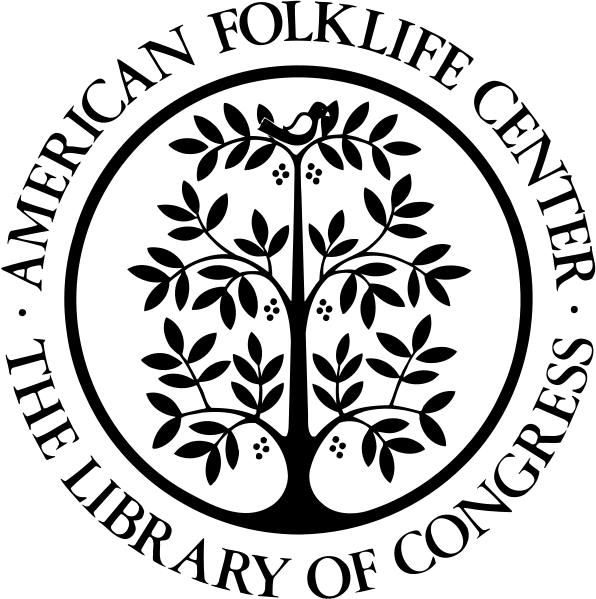Guha Shankar is a Folklife Specialist at the American Folklife Center (AFC) at the Library of Congress (LC). Dr. Shankar sums up his career in this field as combining his “creative and political inclinations — documentary productions accomplished in a collaborative fashion with scholars and community members from under-represented and marginal communities so as to represent their cultural practices to a wider audience, and also and crucially, help preserve a permanent archival record of cultural forms under stress from dominant forces.” Dr. Shankar received his B.A. in Radio, Television, and Film and Political Science in 1982 from the University of North Carolina at Chapel Hill, and went on to complete a Ph.D. in Anthropology at the University of Texas-Austin in 2003, specializing in Folklore and Public Culture. Past professional experience includes almost a decade as a Media Production Specialist and Film Editor at the Smithsonian Institution’s Center for Folklife Programs in Washington, D.C. in the 1980s and 1990s. Currently, Dr. Shankar holds a wide range of responsibilities at the Library of Congress, explaining that, “our (AFC’s) work as public folklorists is intertwined with the LC’s mission to provide our patrons with access to the records of the nation’s artistic, intellectual and cultural legacy in perpetuity. Following on from that, the mission of the Center is to promote and preserve the nation and the world’s documentation of folk traditions.”

Dr. Shankar outlined several key endeavors of the AFC with regards to this mission:
- The preservation of audio-visual and other documentary materials of traditional cultural forms (song, dance, speech, etc.)
- Providing access to these materials to both the broader public, and specifically to communities of origin
- Providing technical training in documentary and oral history production and archival principles via workshops and field schools
- Conducting in-house and collaborative documentary projects on a wide range of topics regarding cultural heritage, politics, and history
In his position at the AFC, Dr. Shankar works on a number of training initiatives, such as AFC’s long-standing Field Schools for Cultural Documentation for university students and community scholars. In the last few years, the field school model has been applied to the Cultural Documentation for Indigenous Communities, in which Dr. Shankar and his colleagues work with distinct cultural groups such as the Maasai of Kenya and the Rastafari and Maroons of Jamaica. By collaborating with groups and individuals who wish to acquire knowledge of and skills in the methods and technologies necessary to document and preserve elements of their culture that are meaningful to them, Dr. Shankar hopes to level the playing field with regard to the issue of representation. The problem of representation is a long-standing issue in ethnographic work, the central tension being the extent to which the perspective of the fieldworker or academic researcher supersedes the voice(s) and views of other cultures and communities, and Dr. Shankar discusses this issue in a recent article for the International Journal of Intangible Cultural Heritage. However, the sustainability of these projects is a continuing challenge for Dr. Shankar and his colleagues. It was not so very long ago that audio cassette machines were the primary device used in fieldwork; to some extent video cassettes were also part of an individual fieldworker’s toolkit. Now, however, the preservation and security of audiovisual cultural heritage materials has become exponentially more complicated with the advent of portable, readily available digital audio and moving image tools, which have replaced analog recorders virtually overnight. The digital revolution has resulted in a marked shift in the use of recording technologies in the AFC’s training programs but also initiated a more fundamental re-thinking of the challenges of long-term archival storage of the materials. Dr. Shankar said in his interview with me, with tongue in cheek, that “in the past, ‘archive’ could be a shoebox, so long as you numbered your cassette tapes.” So, what is to be done with the born-digital sound and moving image works that is now being created by community-based fieldworkers? They have to have IT storage and a robust asset management program in place to keep these items accessible. Even with the advantages of many people being able to record video and audio on smartphones, for instance, Dr. Shankar makes management and sustainability a focus of the training programs. “How are you going to make these stories accessible?” He says. “What is your plan for long -term storage?” Media archivists have to alert community-led documentation projects to the many unanticipated, technological challenges they will face. As Dr. Shankar notes, “the fieldworker is the first archivist – and also is going to have to be the IT manager in some way”. Currently Dr. Shankar’s efforts are focused on a collaboration between the Library of Congress and the Smithsonian Institution’s National Museum of African American History and Culture (which is slated to open to the public in 2015). The Civil Rights History Project is both a survey of existing oral histories and repositories and a venture seeking to record new interviews with Movement participants. More information can be found here.
“Folklife is an integral part of all American lives and an essential part of the National Library. The story of America is reflected in the cultural productions of ordinary people who live everyday lives, from cooking and eating meals, to the activities of work and play, to religious observances and seasonal celebration.” –The American Folklife Center
~Josephine McRobbie
Leave a Reply